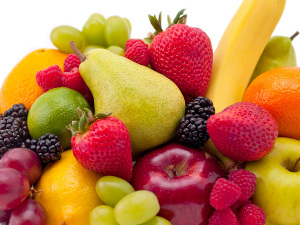Russian ban pushes quality focus in Pakistani citrus

Following a temporary trade ban in October, Pakistani citrus exporters have reevaluated their practices and shipments have begun once again to Russia.
With the elimination of unsavory distributors, however, the Pakistani offering in Russia now looks much smaller, explained Al-Rafique Enterprises business partner Muhammad Babar Naseer.
"There was a problem going on in Pakistan because of some bad exporters and bad quality going to Russia. That is why people in Russia were not satisfied at that time. But later on, there was a delegation that came to Pakistan and talked to the quarantine department in Pakistan," the exporter told www.freshfruitportal.com at Fruit Logistica in Berlin.
Naseer estimated that containers of mandarins in Russia had dropped from around 5,000 the previous year, to under 2,000 to date.
"These days, only good companies are exporting mandarins to Russia," he said.
Phytosanitary negotiations between the two nations encountered complications, due in part to initial disagreement over who should be authorized to carry out inspections, said Badar ul Islam, an officer at the United Nations Industrial Development Organization (UNIDO) Trade Related Assistance Programme (TRTA II).
"Russia wanted our exporters from Pakistan to get their products tested from one specific company who is charging a huge amount for just one container. In Pakistan, there are other internationally accredited laboratories," he said.
"In order to be competitive in the market, you need to cut down these kinds of costs. If you pay US$2,000 just for a test for one container because they have a monopoly, then definitely you won’t be able to remain competitive in that market. That was the other side of the issues that now they have resolved."
Under the current agreement, Naseer said Russian officials conduct inspections, in collaboration with the Pakistani quarantine department.
As part of the nation's export program, Naseer highlighted the kinnow mandarin variety, cultivated in large part in the Punjab region.
He said the Pakistani version of the fruit reaches between 40% and 47% juice content, surpassing its competitors in Morocco and Spain.
With 21 seeds, the variety goes against the current trend toward seedless varieties. Naseer said, however, that the kinnow's seeds contribute to its unique, sweet flavor.
Related story: Russia bans Pakistani fruit
Photo: Muhammad Babar Naseer















































